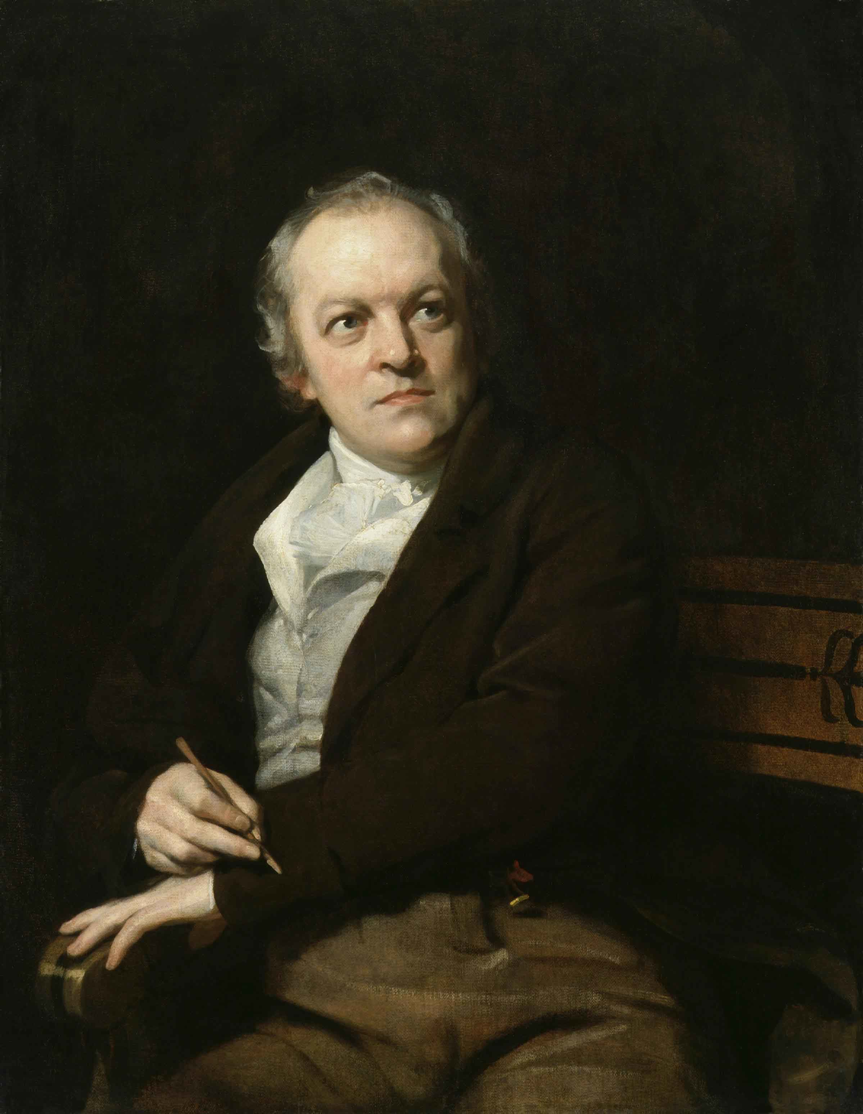William Blake Quotes
1810s, The Everlasting Gospel (c. 1818)
Source: 1800s, Auguries of Innocence (1803), Line 56. Compare Psalm 30:5 (KJV): "weeping may endure for a night, but joy cometh in the morning."
The Fly, st. 1–3
1790s, Songs of Experience (1794)
Variant: Exuberance is Beauty.
Source: The Marriage of Heaven and Hell (1790–1793), Proverbs of Hell, Line 64
“If the fool would persist in his folly he would become wise.”
Source: 1790s, The Marriage of Heaven and Hell (1790–1793), Proverbs of Hell, Line 18
Source: The Complete Poetry and Prose
“Expect poison from the standing water.”
Source: The Marriage of Heaven and Hell
On Another's Sorrow, st. 1
1780s, Songs of Innocence (1789–1790)
“He who desires but acts not breeds pestilence.”
Source: 1790s, The Marriage of Heaven and Hell (1790–1793), Proverbs of Hell, Line 5
“Prisons are built with stones of law; brothels with bricks of religion.”
Source: 1790s, The Marriage of Heaven and Hell (1790–1793), Proverbs of Hell, Line 21
“Then cherish pity, lest you drive an angel from your door.”
Source: Songs of Innocence and of Experience
“The eagle never lost so much time as when he submitted to learn of the crow.”
Source: 1790s, The Marriage of Heaven and Hell (1790–1793), Proverbs of Hell, Line 39
“O Rose thou art sick.
The invisible worm,
That flies in the night
In the howling storm:”
The Sick Rose, plate 39.
Source: Songs of Experience (1794)
Context: p>O Rose thou art sick.
The invisible worm,
That flies in the night
In the howling storm:Has found out thy bed
Of crimson joy:
And his dark secret love
Does thy life destroy.</p
“I myself do nothing. The Holy Spirit accomplishes all through me.”
Attributed to William Blake by Michael J. Gelb in Creativity on Demand: How to Ignite and Sustain the Fire of Genius https://books.google.nl/books?id=lCsNBQAAQBAJ&printsec=frontcover&dq=%22Creativity+on+Demand:+How+to+Ignite+and+Sustain+the+Fire+of+Genius%22&hl=nl&sa=X&ved=0ahUKEwjolMyvm6TLAhVDLQ8KHechDoIQ6AEIHzAA#v=onepage&q=%22I%20myself%20do%20nothing.%20The%20Holy%20Spirit%20accomplishes%20all%20through%20me%22&f=false (2014), but cannot be retrieved in The Marriage of Heaven and Hell, xxii.
Attributed
St. 5
1790s, The Tyger (1794)
Source: Songs of Innocence and of Experience
1790s, Letter to Revd. Dr. Trusler (1799)
“Dip him in the river who loves water.”
Source: The Marriage of Heaven and Hell
“He who replies to words of doubt
doth put the light of knowledge out.”
Source: Auguries of Innocence
“The weak in courage is strong in cunning.”
Source: 1790s, The Marriage of Heaven and Hell (1790–1793), Proverbs of Hell, Line 49
“thus men forgot that all deities reside in the human breast.”
Source: The Marriage of Heaven and Hell (1790–1793), Proverbs of Hell, Line 71
Context: The ancient poets animated all objects with Gods or Geniuses, calling them by the names and adorning them with the properties of woods, rivers, mountains, lakes, cities, nations, and whatever their enlarged & numerous senses could perceive. And particularly they studied the genius of each city & country, placing it under its mental deity; Till a system was formed, which some took advantage of, & enslav'd the vulgar by attempting to realize or abstract the mental deities from their objects: thus began priesthood; Choosing forms of worship from poetic tales. And at length they pronounc'd that the Gods had order'd such things. Thus men forgot that all deities reside in the human breast.
“The busy bee has no time for sorrow.”
Source: 1790s, The Marriage of Heaven and Hell (1790–1793), Proverbs of Hell, Line 11
Source: The Marriage of Heaven and Hell
“When nations grow old, the Arts grow cold,
And Commerce settles on every tree.”
On Art And Artists (1800) 'On the Foundation of the Royal Academy'
America, A Prophecy.
1800s
Source: America: A Prophecy/Europe: A Prophecy: Facsimile Reproductions of Two Illuminated Books
“The true method of knowledge is experiment.”
All Religions are One (1788)
1780s
